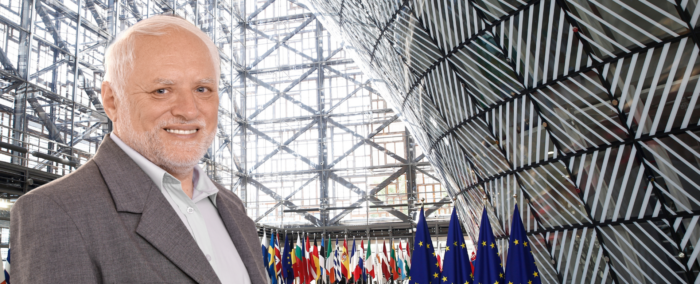The Progressive Post
Europe in 2020

The year 2020 will be recorded forever as one overshadowed by the new coronavirus. Needless to say, this was not the plan. Because there was a plan. A few of us clearly remember. The idea was that the European Union would pursue smart, sustainable and inclusive growth after the Great Recession (of 2009), and by 2020 some specific targets would be reached (including a 75 percent employment rate and the reduction of poverty and exclusion by at least 20 million people). In June 2010, the European Council endorsed this, under the unimaginative title ‘Europe 2020 Strategy’.
Europe 2020 was meant to succeed the more famous ‘Lisbon Strategy’, which was not necessarily a success on all counts. But in 2010, the overall objectives were not questioned, and the intention was to create something that points in the same direction but with greater clout. It was introduced as the only game in town ten years ago but became progressively side-lined at the time of the euro area crisis and the subsequent recovery. Nevertheless, the lessons are crucial if we want to understand the capacity of the European Union, and its limitations, in the area of economic and social development.
The progressive spirit of Lisbon
Let us start with Lisbon itself. The aim of the Lisbon Strategy, launched in March 2000 by the EU heads of state and government, was to make Europe “the most competitive and dynamic knowledge-based economy in the world, capable of sustainable economic growth with more and better jobs and greater social cohesion”. Even though this definition has often been mocked in the past two decades, it helped the EU redefine competitiveness, ahead of economic science itself.
Very importantly, the Lisbon Strategy was launched at an exceptional time when the centre-left was the dominant force in both the European Council and the European Parliament. By that time, the ‘convergence’ agenda of the Economic and Monetary Union had imposed restrictions on the member states committed to adopting the single currency, resulting in high unemployment. It was not purely an marginal question, but a vital political one for the EU, to go beyond the Maastricht paradigm and reconcile economic competitiveness with maintaining the European Social Model.
Originally, the Lisbon Strategy was based on economic and social pillars. One year later, at the European Summit in Gothenburg, a third pillar has been added: the environmental dimension. The underlying idea was that only a common action could lead to success, but several competences were actually at national, not at European, level. This contradiction gave rise to the Open Method of Coordination as a mechanism of soft governance.
Europe 2010: between two recessions
Lisbon was seen by many as lofty on goals and weak on implementation. However, there was no question in 2020 that the EU needed another long-term strategy, one with less concrete targets but stronger governance arms. The Europe 2020 Strategy (named without a city since the European Council stopped moving around by that time) drew the right conclusions from the Great Recession, but failed to mobilise everything that would have been necessary.
Since a new generation grew up since, let us recall that Europe 2020 launched seven flagship initiatives, and wanted to align the growth model on five headline targets. Recommendations were rolled out annually, under the umbrella of the newly established European Semester, in principle to help countries moving towards their 2020 goals. Crucially, the EU budget (Multiannual Financial Framework, MFF), adopted in 2013 and running until the end of 2020, was also organised accordingly.
For good and bad luck, the launch of Europe 2020 coincided with the deep crisis of the single currency, when the diagnosis suggested that the instability of the single currency was linked to the absence of Economics from the actual construction of the Economic and Monetary Union (EMU). Reinforcement required a shift to a new model, and the way to do so was to expand the EU’s role to that of a more forceful coordination of economic and social policies. The good news was that the idea of reinforced governance gained traction quickly. But the bad one was that growth in all forms was subordinated to the obsession with fiscal austerity and neoliberal structural reforms, in particular in the 2011-2013 period.
The silent death of a strategy
Europe 2020 suffered the first wound from the eurozone debt crisis, when the so-called ‘program countries’ (those assisted by the famous Troika) were taken out of the European Semester. After a few years, when the euro came close to disintegration, very few considered it important to pursue smart, sustainable, and inclusive growth. Just any kind of growth was desirable.
After a few years, Europe 2020 was widely seen to be a paper tiger. In 2014, the new Commission president Jean-Claude Juncker faced a choice: either building muscles to the strategy or eliminating it from the political agenda. He opted for the second. The European Semester was not dropped but simplified: the initial five goals of the economic governance cycle were reduced to only three.
For Juncker, the commitment to sustainability must have been the most disturbing of all Europe 2020 goals. While in the Barroso II Commission we had a commissioner for the environment and another one for climate, Juncker merged the first with maritime affairs and the second one with energy. But neither of the Europe 2020 targets remained in the political limelight. Eurostat did not stop collecting data about them and continued to provide analysis, but the higher echelons of the EU institutions avoided using them as much as they could.
To infinity, and beyond
It is indeed a question whether it makes sense at all to develop visions and set targets, especially in a community as complex as the European Union. If a program is announced but not followed through, the result is a loss of credibility. However, it seems life reproduces the need for such long-term programs, and the electorate expects leaders to be strategic and forward looking.
The current Commission president, Ursula von der Leyen announced a program not for ten years but for thirty. Her program built around the climate change challenge is de facto a ‘Europe 2050’, but with only one target instead of five. Looking at the Green Deal this way, it can be considered a successor of Lisbon and Europe 2020, but without the explicit technological and social dimensions.
Smart, sustainable, and inclusive has morphed into smart, sustainable and resilient. The difference between inclusive and resilient is meaningful. The latter means that you should prepare yourself for adversity and shocks, without counting on the support of others. By highlighting inclusion, Europe 2020 had shifted attention and efforts to the economic and social integration of marginalised groups. Resilience, instead, means dropping the progressive commitment to inclusion, as long as economic sustainability is given, which, by definition, results in lowering social objectives.
The Europe 2020 strategy was a second attempt of the EU to take control of long-term trends in economic and social development. Instead of airbrushing it, we should analyse where it succeeded and where it failed. This way the progressive potential of the European Union can be rediscovered, which can lead to the necessary reset of our economic governance mechanism as well. Besides, this might be necessary to reduce the risk for the Green Deal to fail and to be forgotten in a couple of years’ time.




